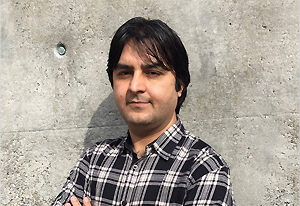
Engaging with critical Sufi heritage identity expression in Sindh, Pakistan
The idea of engaging with socially engaged, critical Sufi heritage has emerged from my interdisciplinary PhD research project on ‘contemporary progressive-pluralist Sufi narrative and performance in Sindh Pakistan’ based in Walter Benjamin Kolleg’s Graduate School of Humanities – Interdisciplinary Cultural Studies, University of Bern, Switzerland. Conceptually and methodologically informed by an engaged, connected and collaborative humanities research practice framework (see, Taking Humanities on the Road (THoR) Ideas – and Actions Lab, Graduate School of Humanities, University of Bern), in my work I depart from Sufism’s conventional idea of individual and esoteric experience and bring into focus the socio-politically engaged, progressive-pluralist intellectual Sufi discourse and performance in Sindh region in Pakistan. The reconstruction of socially engaged, progressive intellectual cultural production and expression of Sufi heritage by Sindhi progressive intelligentsia, activist artists and musicians tend to manifest the critical reading of Sufism in the making of alternative, argumentative tradition (Sen 2005) discourse of heritage (Smith 2006) inventing traditions (Hobsbawm 1984) and performance of politics (Taylor 2003, 2016).
By investigating the contemporary engaged, critical cultural production of Sufi heritage, in my research project, I take lead from the concept of socially engaged Buddhism (King 2009) to analyse the shift in focus from traditional saint-veneration, shrine based Sufi spirituality to intellectual, artistic Sufi expressive identity space i.e. the cultural festivals, music and mediatization of Sufi culture. Contrary to religious revivalist, reformist piety movement, the progressive-pluralist Sufi expression contains the critical epistemic currents and agency to counter the legalist, theological approach to Islam. I argue that the socially engaged, progressive and heterodox Sufism’s critical epistemic space cultivates the ideas of tolerance, plurality, peaceful co-existence, democratisation and decoloniality within Islam by countering the authoritative clerical knowledge claims. In my research project, I endeavour to articulate the vibrant performative culture of vernacular heterodox Sufism that offers critical potential to cultivate the alternative subjectivity within Islam/Muslim contexts. Using the ethnographic research method in my project, I work with progressive activist artists, writers, theatre producers and performers, academics, youth, human rights, civil society members, cultural institutions and TV channels that contribute to the cultural production and enactment of engaged progressive Sufi narrative and performance. Based on ethnographic research recordings of Sufi music I plan to create a YouTube video archive to make visible the Sufi heritage’s contributions to alternative identity, plurality of knowledge and peace narrative in Muslim cultures.
Rafique Wassan

Rafique Wassan studied anthropology at Quaid-i-Azam University, Islamabad, with his MSc research focusing on the ethnography of hereditary caste musicians in Sindh, Pakistan. He has been involved in participatory research and community development projects using social change and human-rights frameworks, and has presented at numerous national and international events. He participated in a South Asian fellowship on masculinities and social change in 2011 and a workshop on anti-democratic movements in Germany in 2015. Since September 2015, he is pursuing a PhD in anthropology, ethnomusicology, and cultural studies at the University of Bern, focusing on Sufi literary and performance heritage in Sindh, Pakistan.
video


thor project, University of Bern
University of Bern
Faculty of Humanities
Walter Benjamin Kolleg
E-mail
info@thor-project.ch
Address
Muesmattstrasse 45
CH-3012 Bern